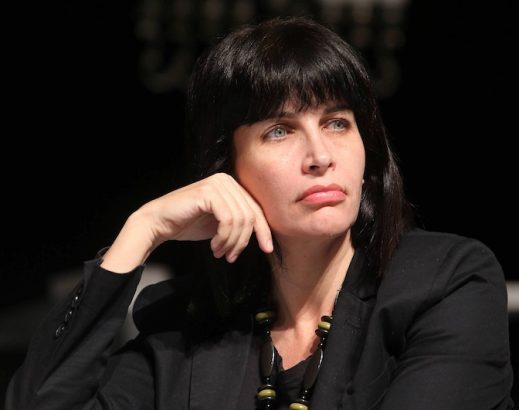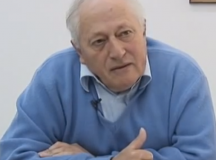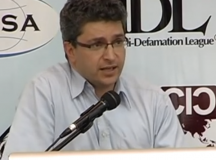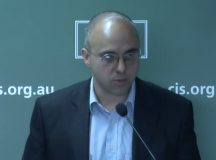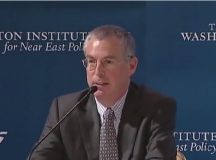Alan Johnson: There have been three military operations in Gaza since 2008. Not just Israelis and Gazans, but the international community are increasing vocal in saying we need to avoid a fourth round if possible. Udi Dekel and Shlomo Brom of the Institute for National Security Studies (INSS) have proposed the policy of ‘reconstruction for demilitarisation’. What is your general assessment of the broad approach taken in the Dekel and Brom paper?
Einat Wilf: I share the assessment that it is good to put the idea of demilitarisation on the table. Whether we are talking about the negotiations with the Palestinian Authority (PA) or the conflict in Gaza, I think it’s very smart. And to put it in the context of reconstruction is also very smart, because it sends an important message: we are not at war with the people of Gaza, we are war with Hamas and its ideology.
Having said that, we have to think about the conditions under which demilitarisation has happened before and could happen in Gaza.
First, demilitarisation happens when a power is willing to enforce it and controls the area that is to be demilitarised. That used to mean a victorious power. We have examples of that in history, but clear defeats and surrenders are phenomena that we haven’t had in quite a while. There was a time when armies surrendered and then another power could move in and achieve things. I don’t think there will be surrender in this case.
Second, demilitarisation happens when a power is willing to accept the protection of another power. For example, the West Bank could agree to be under the protection either of the Israeli Defence Forces or the Jordanian Army, while Gaza could agree to be under the control of the Egyptian military. In this scenario, another power is responsible not just for demilitarisation but for protection. No-one will agree to be demilitarised without getting protection from someone else: they need to know who will defend them. Ideally, Egypt would protect the Gazans. Until it does so, I don’t think we have a solution.
There is a third way. You might have a country that is willing to offer protection in the context of a wider peace agreement. Again, I don’t see that being close.
More: if Hamas is going to be in control, we need to accept we will continue to be in a state of war. We need to make it clear that we are in a state of war by closing borders, having absolutely no economic connection, and by making it clear that as far as we’re concerned they have a border with Egypt. As long as it’s clear to the people of Gaza that we wish them well, it is not our job to make them have a better life. That is their job. But if they chose to have a government that is at war with us, then we’ll be at war with them. I don’t think we need to deny that fact.
AJ: One of your roles is to be a roving ambassador for Israel. What is your sense of the impact of this current conflict on Israel’s global standing? Also, if Israel was to adopt a policy of closing the border with Gaza what impact would that measure have on global public opinion about Israel?
EW: I’ll start with the second part of that question. If Israel were to do that, we’d have to do it in a way that got international approval and international understanding that Israel is not occupying Gaza, period. That is something which we did not get after the disengagement in 2005. We need to complete the disengagement so that there’s no debate about whether we occupy Gaza or not. It has to be clear that we’re not and we don’t have responsibility for what happens there. We can say that we’re going to stop armaments from getting in, but other than that, we have nothing to do with Gaza.
That approach would highlight the fact that Egypt is there. Very few people understand that since 2005 Gaza has a direct border with Egypt. Some people might call it the ‘Egyptian-Israeli siege’, but almost everyone will just talk about ‘the Israeli siege’ without recognising Egypt plays a very important role.
In terms of the impact of this conflict on Israel’s standing, we started out very well, with a high level of legitimacy. I think there was a moment when we took a major hit, when the numbers of casualties started to rise and people were beginning to question our conduct of the operation. However, now I feel that there is a bit of a rebalancing again, as more evidence emerges; for example, journalists leaving Gaza are saying that they were not truly able to report what was going on there. So, I think the jury’s still out.
A final thought: the Western mindset is keen for solutions; things that tie everything in a nice bow. In our region we have to accept that not everything can be tied in a nice bow.

